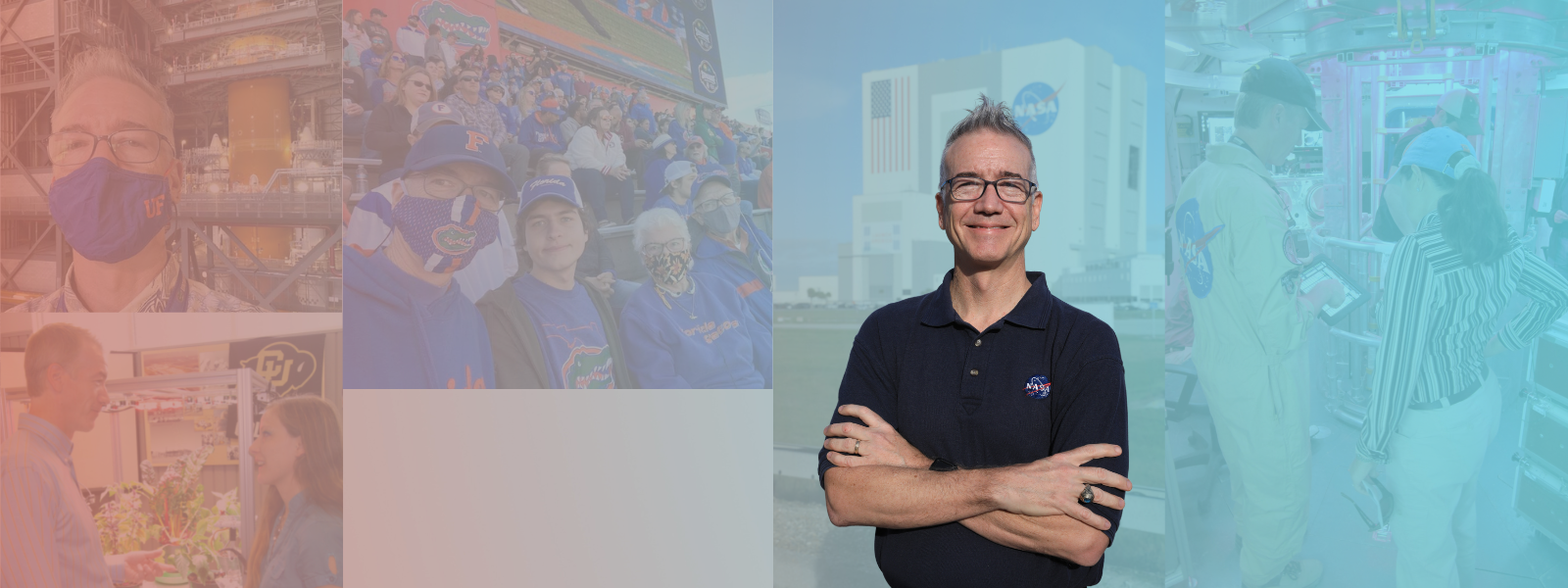When NASA establishes the first ever long-term human presence on the Moon, and eventually uses that base as a springboard to Mars, this seminal achievement will undoubtedly go down as one of the most significant events in the history of our species. And humanity’s upcoming return to the magnificent desolation, as Buzz Aldrin described the barren lunar terrain, will have been aided by a man whose life and career was launched from the lush green swamps of Gainesville.
Tracy Gill, who was born and raised in Florida before attending UF in the 1980s, is now deputy manager for Lander Ground Operations in NASA’s Human Landing Systems (HLS) program, a role that includes involvement with the upcoming Artemis missions.
The aims of Artemis include landing the first woman and person of color on the Moon, using new technologies to explore more of the lunar surface, establishing a long-term presence on the Moon, and eventually sending astronauts to Mars for the first time.
In his role, Gill and his office provide insight and guidance that facilitate successful ground processing operations for the missions. One of the ways they do this is by developing and testing flight vehicle components on the ground. During these projects, Gill uses the experience he gained while working on the International Space Station, when he was part of early assembly missions and ran a specialized series of tests to ensure that pieces of the station would interface correctly when they joined in space. The Artemis campaign will also be launching elements that are designed to meet for the first time in space.
“When these first-time connections are in the vicinity of the Moon rather than in low Earth orbit, the stakes are even higher,” he said, referring to the difficulty of dealing with any issues that might arise when the mission is taking place farther from home.
Gill’s experience prior to Artemis spans 30 years working for NASA, during which he was involved with the ISS, space shuttle payloads, the Constellation program, the Habitat Demonstration Unit project, research and technology development at the Kennedy Space Center (including a role as the Deputy Chief Technologist of the KSC), and commercial partnering efforts for exploration of the Moon and Mars (Next Space Technologies for Exploration Partnerships, or NextSTEP).
He attributes the many successes of his career partly to his experience studying at UF, where he earned a bachelor’s degree in electrical engineering and a master’s in aerospace and mechanical systems.
“UF prepared me well for the workplace because it was so challenging and taught me how to learn,” he said. “And when I got to NASA, I needed to use those learning skills to solve new kinds of problems that came up every mission.”
In recent years, he has made efforts to reconnect with the MAE community, including talking to student organizations, participating as a reviewer for senior design projects, and attending a local engineering alumni gathering last year. He also remains an ardent Gators sports fan, and has attended national championship-clinching wins for both UF’s football and basketball teams (the 1997 Sugar Bowl and 2007 Final Four, respectively). His parents, sister, wife, and son are all Gators as well. “My connection to the university began at birth and runs strong to this day,” he said.
Ben Crosbie
Marketing & Communications Student Assistant
UF Mechanical & Aerospace Engineering
July 7, 2022

